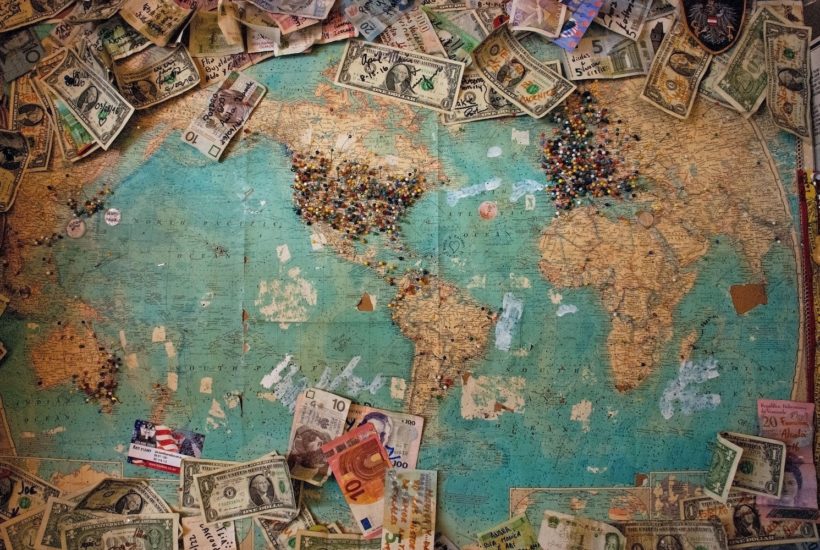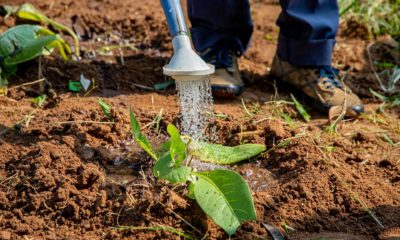Africa
EIB makes $4.3 billion commitment to support investment in Africa
The European Investment Bank (EIB) has agreed to $4.3 billion (€4 billion) of new financing of public and private sectors in both sub-Saharan and North Africa in 2020. During recent years EIB enabled record activity of more than $13 billion (12 billion) of new financing in Africa in cooperation with the African Development Bank, the World Bank and the European Bank for Reconstruction and Development.

The European Investment Bank (EIB) plans to significantly increase its commitment to both sub-Saharan and North Africa, and to provide $4.3 billion (€4 billion) to support public and private investment across the continent in 2020, the leaders of the European Union’s (EU) long-term financing institution announced on February 24th, 2020.
“This will include increased support for infrastructure that fosters private sector growth, thus enabling job creation by small businesses, start-ups, and large companies, and making new financing available for climate and sustainable development investments.”
Get up-to-date financial news, comments, and analysis from the African continent with the Born2Invest mobile app.
More than $13 billion worth of new financing in Africa
EU leaders added that in recent years, alongside close technical and financial cooperation with the European Commission, the EIB has provided more than $13 billion (€12 billion) of new financing in Africa, in cooperation with international and European development financing partners, including the African Development Bank (AfDB), the World Bank and the European Bank for Reconstruction and Development (EBRD), as well as the Dutch, French, and German development finance agencies.
The EIB is also working closely with UN-Habitat to improve water infrastructure serving the populations around Lake Victoria, with UNHCR to ensure access to finance for refugees in Uganda and with UNIDO to support private sector development.
More than $1.9 billion to support private sector investment in Africa
Private companies are not to be outdone. In 2019, the EIB provided more than $1.9 billion (€1.8 billion) to support private sector investment in Africa, representing 60% of its overall commitment to the continent. “This included a further $542 million (€500 million) to help African start-ups in the areas of digital, agribusiness, financial inclusion and health,” the European Bank’s officials said.
According to them, the EIB’s new partnerships with African companies, banks and microcredit organizations provide specialized financing for small farmers, remove the costs associated with local currency financing investment and help private companies to invest in climate change adaptation.
On another front, the EIB reports that it has provided new support to bring telecommunications network coverage to remote rural areas of West Africa for the first time, to provide access to microcredit for rural areas in the Sahel, to support off-grid solar energy in Mozambique and Malawi, to better protect coastal roads in the island state of Sao Tome and Principe and to ensure the supply of drinking water to 2.2 million people in the Malagasy capital in the wake of recent typhoons.
Africa is a key priority
“Africa is a key priority for the EU and the EIB,” said Werner Hoyer, President of the EIB. In his view, the EIB is committed to working with African partners to accelerate and scale up new investments that promote sustainable development, tackle the climate emergency, create jobs and improve living conditions across Africa. To this end, in 2019 the EIB has made available $3.3 billion (€3 billion) of new financing that will, according to EIB officials, support $11.6 billion (€10.7 billion) of investment that will bring about change across Africa.
In President Hoyer’s understanding, “the $3.3 billion (€3 billion) of new EU bank investment in Africa in 2019 builds on 54 years of activity in 52 African countries.” He also argues that in recent months, the EIB has launched unprecedented new initiatives to accelerate essential new investments to enable women to participate fully in economic activity under the pioneering SheInvest programme, to ensure that innovative African businesses can grow and to combine its financial expertise with philanthropic actions to fight malaria.
__
(Featured image by Кристина Рой via Unsplash)
DISCLAIMER: This article was written by a third party contributor and does not reflect the opinion of Born2Invest, its management, staff or its associates. Please review our disclaimer for more information.
This article may include forward-looking statements. These forward-looking statements generally are identified by the words “believe,” “project,” “estimate,” “become,” “plan,” “will,” and similar expressions. These forward-looking statements involve known and unknown risks as well as uncertainties, including those discussed in the following cautionary statements and elsewhere in this article and on this site. Although the Company may believe that its expectations are based on reasonable assumptions, the actual results that the Company may achieve may differ materially from any forward-looking statements, which reflect the opinions of the management of the Company only as of the date hereof. Additionally, please make sure to read these important disclosures.
First published in Financial Afrik, a third-party contributor translated and adapted the article from the original. In case of discrepancy, the original will prevail.
Although we made reasonable efforts to provide accurate translations, some parts may be incorrect. Born2Invest assumes no responsibility for errors, omissions or ambiguities in the translations provided on this website. Any person or entity relying on translated content does so at their own risk. Born2Invest is not responsible for losses caused by such reliance on the accuracy or reliability of translated information. If you wish to report an error or inaccuracy in the translation, we encourage you to contact us.

-

 Cannabis6 days ago
Cannabis6 days agoAI Can Mimic Psychedelic Experiences but Cannot Truly Feel Them, Study Warns
-

 Cannabis2 weeks ago
Cannabis2 weeks agoWhen a Cutting Becomes a Cannabis Plant: Court Clarifies Germany’s Three-Plant Rule
-

 Crowdfunding2 days ago
Crowdfunding2 days agoBSG Stahl Riesa Launches Crowdfunding for New Floodlights
-

 Africa1 week ago
Africa1 week agoMASI Surge Exposes Market Blind Spot: The SAMIR Freeze and Hidden Risks
























